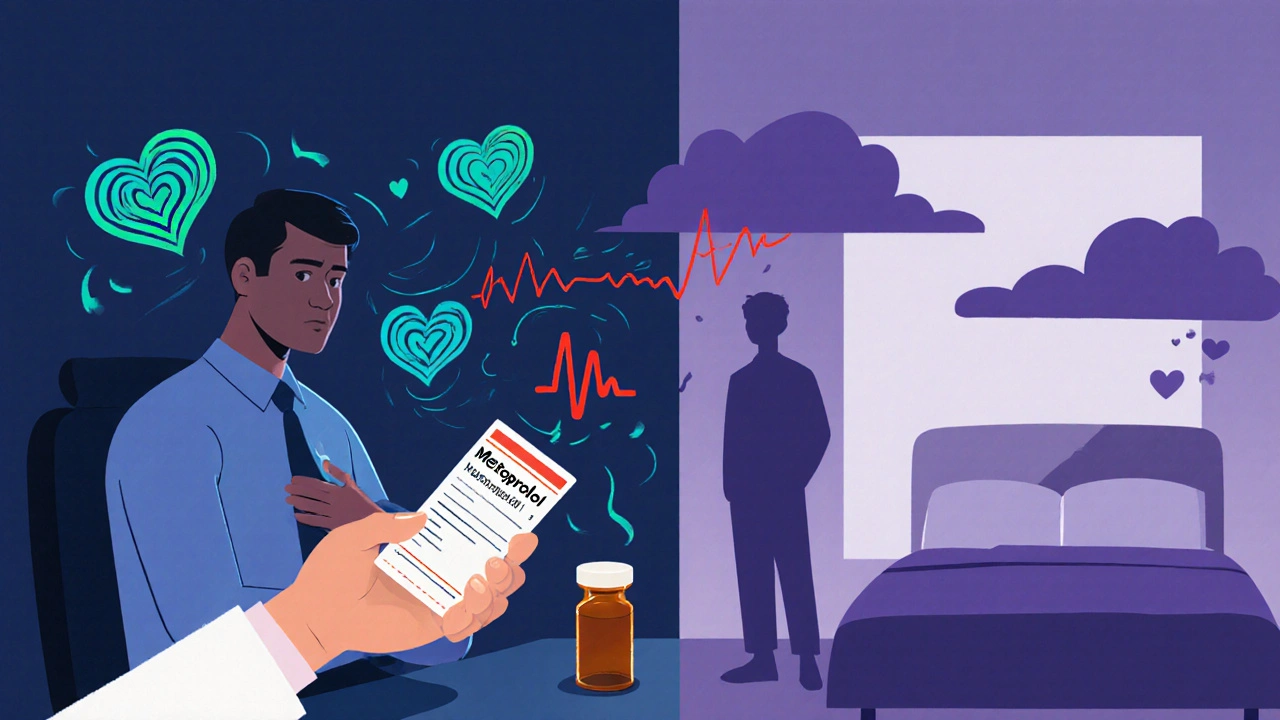Beta Blocker Side Effects: What You Need to Know
When you take a beta blocker, a class of medications used to treat high blood pressure, heart rhythm issues, and anxiety by slowing the heart and reducing its force. Also known as beta-adrenergic blocking agents, these drugs work by blocking adrenaline’s effects on your heart and blood vessels. They’re not just for heart patients—many people use them for migraines, tremors, or even performance anxiety. But like all meds, they come with trade-offs.
You might notice fatigue, a common and often underestimated side effect of beta blockers—feeling tired even after a full night’s sleep. Cold hands and feet, happen because these drugs reduce blood flow to your extremities. Some people get dizziness, especially when standing up fast, because blood pressure drops too much. Less common but serious? Slowed heart rate, trouble breathing in people with asthma, or even depression. Not everyone gets these, but if you do, it’s not "just in your head"—it’s a known reaction tied to how the drug works.
Not all beta blockers are the same. Propranolol, a non-selective type, crosses into the brain more easily, which is why it helps with anxiety and tremors—but also why it’s more likely to cause sleep issues or low mood. Atenolol, a selective one, focuses mostly on the heart, so it’s less likely to mess with your mood or lungs. Your doctor picks one based on your condition, age, and other meds you’re on. If you’re on one and feel off, it’s not weakness—it’s pharmacology.
Many people stop taking beta blockers because they feel sluggish or think the side effects are worse than the problem they’re treating. But skipping doses or quitting cold turkey can be dangerous—your heart might react badly. If something feels wrong, talk to your doctor. There are alternatives, different dosages, or timing changes that might help. The goal isn’t to suffer through side effects—it’s to find the right balance so your heart stays protected without dragging down your life.
Below, you’ll find real comparisons of medications that work similarly to beta blockers, side effect breakdowns of specific drugs, and guides on managing symptoms without giving up treatment. Whether you’re on one now, considering starting, or just trying to understand why you feel the way you do, these posts give you the clear, no-fluff facts you need.
Metoprolol and Erectile Dysfunction: Key Facts Every Man Should Know
Learn how metoprolol may affect erectile function, understand the science behind the link, and discover actionable steps to protect your sexual health while managing blood pressure.
More
